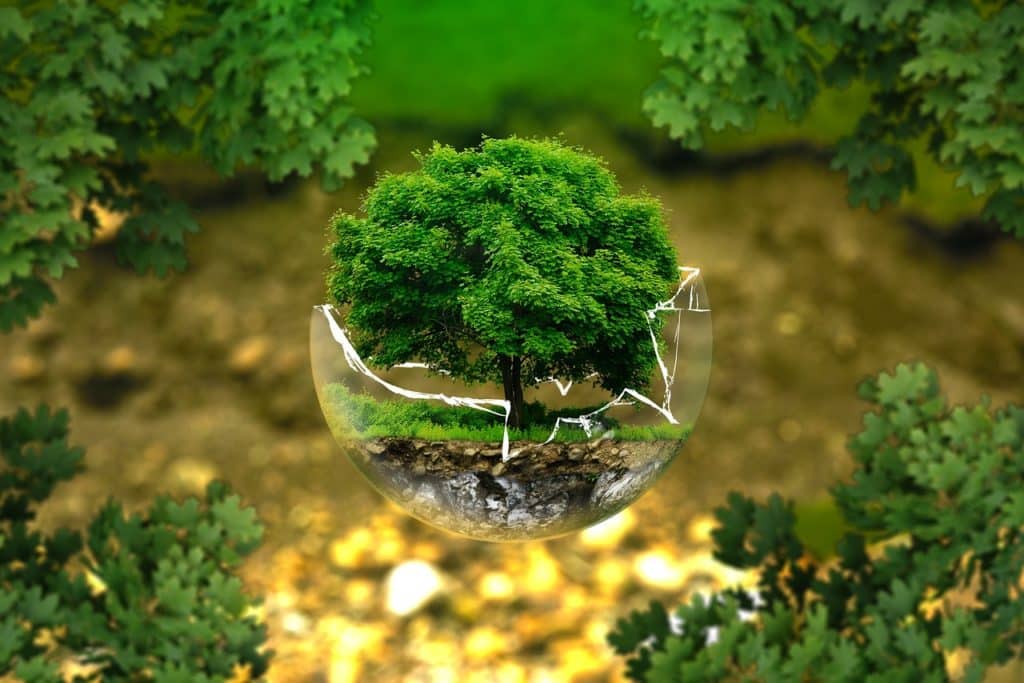Eco-friendly products, also known as green products or environmentally friendly products, are items that inflict minimal harm to the environment during their entire lifecycle. From sourcing of raw materials, production, distribution, usage, all the way to disposal, these products maintain a low environmental footprint. They often help conserve resources like water and energy, limit emissions of greenhouse gases and are free from toxic substances that can leach out into the environment.
Importance of eco-friendly products for today’s market
The growing awareness about climate change and the increasing social responsibility of companies to limit their environmental impact have brought eco-friendly products to the forefront of today’s market. The demand for eco-friendly products is on a steady rise as more and more consumers are prioritizing sustainability in their purchasing decisions. These products not only contribute to environmental preservation but also propel the transformation towards a green economy.
Understanding What are Micro Startups
Micro startups are small-scale businesses which often start with a minimal number of employees, often less than ten individuals. These startups focus on a specific niche market and aim to fill a gap by delivering unique, innovative solutions. They are typically self-funded, but can also receive financial support through family, friends, or small-scale investors.
Benefits of starting a micro startup
Starting a micro startup has several benefits. Being small, they can adapt swiftly to market changes, innovate quickly, and most importantly, keep operation costs low, which significantly reduces the financial risk. With the emphasis on value rather than mass production, micro startups have the potential to contribute meaningfully to the economy and community.

Identifying Your Eco-friendly Niche
Determining your passion in ecological matters
Passion is an important driver when launching a business, particularly within the green sector. It propels you to continuously find creative ways to offer environmentally friendly solutions. By identifying what ecological matters you care about most, whether that’s reducing waste, conservation, animal rights or others, you can single out a fitting niche for your startup.
Researching the eco-friendly market
Understanding the eco-friendly market is crucial in determining your potential reach and mapping out your business strategy. Research helps you to identify the top players in your chosen niche, understand consumer behavior, and detect emerging trends. You can then tailor your eco-conscious products to effectively address consumer demands and outmaneuver your competition.
Choosing the Right Product
Factors to consider
When selecting your product, consider factors like raw material sources, production process, packaging, disposal implications, and potential marketability. Your product should not only be eco-friendly but also practical and appealing to customers.
Surveying the competition
By researching competitors in your niche, you can identify gaps in their offerings and explore ways to differentiate your product. This can create value for consumers and give your startup a competitive edge.

Eco-Friendly Product Ideas
Eco-Friendly Food and Beverages
Organic Food Products
The shift towards organic food products encompasses a wide range of items, from fresh fruits and vegetables to packaged goods. The growing consumer demand for these products stems from their lack of pesticides, contributing to both personal health benefits and environmental well-being. This trend reflects a broader consumer awareness of the impact of agriculture on the environment, driving a preference for products grown in a manner that’s more harmonious with nature. The organic food sector is not just limited to basic produce but extends to a variety of goods, including dairy substitutes, organic snacks, and health-focused beverages, all produced under stringent organic farming guidelines.
Vegan Alternatives
The increasing popularity of vegan alternatives reflects a shift in consumer preferences toward more sustainable and ethical food choices. Plant-based substitutes for traditional animal products, such as soy milk, almond milk, vegan cheese, and a variety of meat alternatives made from ingredients like soy, peas, and mushrooms, are gaining traction. These products are favored not only by vegans but also by individuals looking to reduce their environmental footprint, as plant-based diets generally require fewer natural resources and produce fewer greenhouse gases compared to animal farming. The innovation in this sector is continuously evolving, offering consumers a wide range of choices that closely mimic the taste and texture of animal-based products.
Sustainable Clothing and Accessories
Ethical Fashion Brands
In the fashion industry, a growing segment of brands is focusing on sustainability and ethics. These brands emphasize the use of organic materials such as organic cotton, bamboo, or recycled fabrics, ensuring their production processes are environmentally friendly and energy-efficient. Additionally, they often adhere to fair trade practices, ensuring that workers in their supply chains are treated fairly and work under safe conditions. These ethical fashion brands not only cater to the growing demand for eco-friendly clothing but also drive change in the industry by setting new standards for production and corporate responsibility.
Second-Hand Clothing Stores
The rise of second-hand clothing stores and platforms highlights an eco-friendly approach to fashion. By selling and purchasing pre-owned items, consumers play a direct role in reducing textile waste and extending the life cycle of garments. This approach is not only environmentally beneficial but also offers an economical alternative to buying new. The second-hand clothing market includes a wide range of products, from everyday wear to luxury items, catering to diverse consumer tastes and budget ranges. This trend is supported by growing consumer awareness of the environmental impact of fast fashion and a rising interest in unique, vintage, and retro styles.
Green Cleaning Products
Biodegradable Cleaning Products
In the realm of cleaning products, there is a noticeable shift towards biodegradable options. These products are formulated to be effective in cleaning but without the harmful chemicals found in conventional supplies. Being biodegradable, they break down naturally in the environment, reducing the ecological footprint. This category includes a range of products like all-purpose cleaners, dish soaps, and laundry detergents, formulated with natural ingredients and essential oils. Consumers are increasingly drawn to these products as they seek to reduce their environmental impact without compromising on cleanliness and hygiene.
Reusable Cleaning Tools
Alongside biodegradable cleaning agents, there’s a growing trend in using reusable cleaning tools. These include items like washable cloth rags, durable scrub brushes, and refillable cleaning product dispensers. The focus here is on reducing waste, particularly the disposable products that contribute to landfills. By choosing reusable tools, consumers are making a conscious decision to reduce their ecological footprint, opting for sustainability in their everyday cleaning practices. This trend aligns with a broader movement towards a more sustainable lifestyle, where reducing, reusing, and recycling are key principles.

Eco-Friendly Beauty and Personal Care Products
Cruelty-Free Cosmetics
The beauty industry is witnessing a surge in the popularity of cruelty-free cosmetics. These products are made without animal testing and often incorporate plant-based ingredients. The shift towards cruelty-free cosmetics reflects a growing consumer awareness of animal welfare and a desire for more ethical beauty products. Brands in this space are increasingly transparent about their ingredient sourcing and manufacturing processes, appealing to consumers who are looking for beauty products that align with their ethical values.
Zero Waste Personal Care Items
There’s a notable trend in personal care products towards zero waste options. This includes items like bamboo toothbrushes, shampoo bars, and refillable beauty products. The focus of these products is on minimizing environmental impact by eliminating plastic packaging and reducing waste. These items are often made from natural and sustainable materials, aligning with a consumer shift towards not just eco-friendly products, but also a more sustainable, minimalistic lifestyle. This trend is part of a larger movement towards conscious consumption, where the environmental footprint of products is a key consideration for consumers.
Sustainable Home Goods
Recycled or Upcycled Home Decor
In the home goods market, there is an increasing interest in recycled or upcycled decor items. These products range from furniture made from reclaimed wood to decorative items created from repurposed materials. This trend caters to consumers who are looking for unique and sustainable options to furnish and decorate their homes. The appeal of these items lies in their uniqueness, environmental sustainability, and often the stories they carry, adding a distinct character and narrative to home spaces.
Energy-Saving Appliances
Energy-saving appliances represent a key sector in sustainable home goods. These appliances, designed to be more efficient in energy consumption, are not only better for the environment but also economically advantageous for consumers in the long run. They encompass a broad range of products, from refrigerators and washing machines to smaller appliances like LED light bulbs and programmable thermostats. These appliances contribute to reducing overall household carbon footprints and are part of a larger trend towards energy-efficient homes. As concerns about energy conservation and environmental impact grow, energy-saving appliances are becoming a priority for consumers seeking to reduce their ecological impact while managing household expenses more efficiently.
Developing Your Product
Understanding consumer needs
Understanding what consumers need and value in eco-friendly products helps you create products that cater to them. Ensuring they meet the functionality, quality, and price expectations of consumers increases your product’s appeal. Conducting thorough research and testing in a product development laboratory can lead to innovative and high-quality solutions that resonate with your target market.
Emphasizing sustainability in all stages
Sustainability should be emphasized in all aspects of your business, from sourcing materials and manufacturing to packaging and delivery methods. This displays your dedication to a healthier planet and helps attract eco-conscious customers.
Effective Green Marketing Strategies
Highlighting eco-conscious values
Green marketing strategies should exhibit your company’s commitment to environmental stewardship. This can be done by educating consumers about how your products contribute to sustainability and by highlighting any eco-certifications your products may have.
Building a green brand image
Your brand image should reflect your eco-friendly ethos. Encourage reviews from satisfied customers, partake in green initiatives, and use your platforms to spread awareness about environmental issues. This reinforces your brand’s credibility and encourages customer loyalty.
Building Partnerships and Collaborations
Partnering with other green businesses
Creating a network amongst other green businesses promotes mutual growth. This could involve sourcing materials from other green companies, cross-promoting each other’s products, or collaborating on joint initiatives.
Collaborating with environmental organizations
Associating with environmental organizations not only amplifies the impact of your eco-friendly efforts but also boosts your brand’s reputation. You could donate a part of your proceeds to these organizations, engage in ecosystem restoration projects, or sponsor eco-conscious events.
In conclusion, launching an eco-friendly product through a micro startup is both a lucrative and impactful venture. With the right passion, product, and strategy, entrepreneurs can play their part in the movement towards a more sustainable future and witness significant success along the way.
